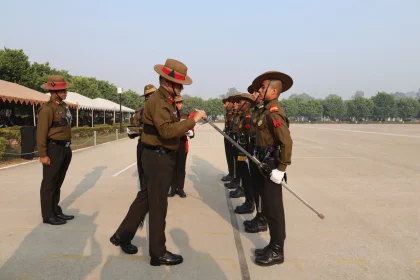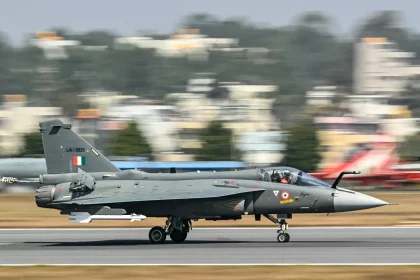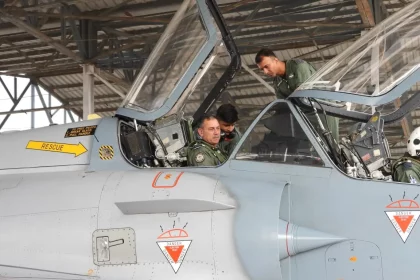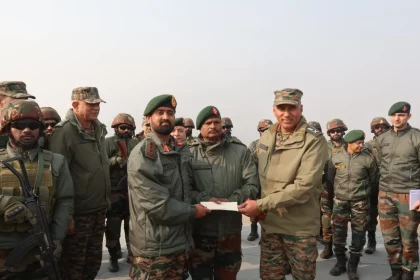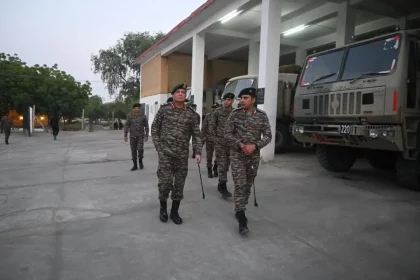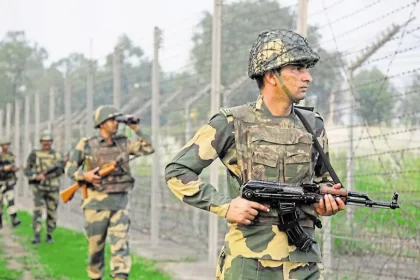363 Agniveers Join Indian Army at 39 Gorkha Training Centre, Varanasi
Honouring Discipline, Courage, and Commitment: 363 Young Recruits Take Oath to Defend the Nation.
HAL Leads as Indian Defence Firms Post 8.2% Revenue Growth: SIPRI Report
HAL, BEL, and MDSL Drive India’s Defence Revenue Growth Amid Global Arms Surge.
Air Marshal Narmdeshwar Tiwari Flies Mirage 2000 on Final Visit to No. 1 Squadron During Farewell as Commodore Commandant
VCAS Air Marshal Tiwari Undertakes Mirage 2000 Sortie and Reviews No. 1 Squadron on Farewell Visit.
Lt Gen Pratik Sharma Reviews Security and Operational Readiness in Kashmir Valley
Army Commander praises troops for professionalism and operational excellence in Kashmir.
Lt Gen Dhiraj Seth Reviews Operational Preparedness and Welfare Initiatives at Southern Command Military Stations
Army Commander reviews training, infrastructure, and welfare initiatives at key Southern Command stations.
India Emerges as Major Power in Asia, Ranks Third in 2025 Asia Power Index
India secures third spot in Asia Power Index, behind China and US.

